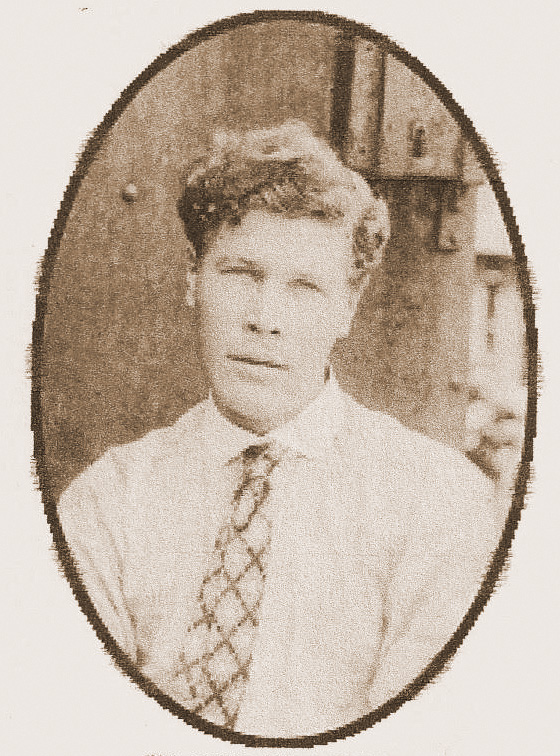Jadon Gibson: A horrid murder in Letcher County
Published 3:38 pm Thursday, May 11, 2023

- Floyd Frazier
|
Getting your Trinity Audio player ready...
|
BY JADON GIBSON
Contributing columnist
Letcher County, Kentucky Sheriff Louis Cook could only wonder what type of villain had performed such mischief and evil. They found the 30-year-old widow Ellen Flanery covered with rocks. She had been raped, her throat cut, stabbed in the breast and had various other injuries including bone fractures. It was the grisliest scene the officers had investigated. The sheriff had to turn away from the atrocious scene as he thought how awful the death struggle must have been for the young woman.
The rocks that were removed from the body of Ellen Flanary were stacked like cairns of old but these rocks, the sheriff concluded, were not meant to symbolize any type of monument. They were purposely placed to hide a dastardly deed, the ghastly murder of Ellen Flanary on May 23, 1907.
Floyd Frazier had been seen in the area several times and when the lawmen went to his mother’s residence where he lived they found some of his clothing with fresh stains of blood. Frazier refused to answer any of the sheriff’s questions. He also disavowed owning a bloody knife found near the crime scene although others said it appeared to be his.
“If this isn’t your knife then show us your knife,” the sheriff instructed the young man but Frazier would not or could not.
The young man did confess to the crime in the upcoming days. His trial was held in early February of 1908 and as expected Frazier was found guilty. Eleven of the jurors voted for hanging but the twelfth voted for life imprisonment. The case would have to be retried at the next term of court.
In the second trial a jury from Floyd County, Kentucky was empaneled and they also found Frazier guilty of first-degree murder. He was sentenced to hang on July 3, 1908. Animosity was running high toward Floyd Frazier in Letcher County. He was sent to the Bell County jail in Pineville, Kentucky for safekeeping. Justice didn’t seem to come swift enough on atrocious murders such as this and at times led some individuals to take the law into their own hands.
Floyd Frazier didn’t agree with the verdict and decided not to wait around for such a neck-tie party (hanging) by disgruntled citizens so he decided to try escaping with seven other prisoners. He wasn’t found until Thanksgiving. Sheriff Rice Johnson and Officer Lew Mays located and arrested Frazier on Bryson Mountain in Tennessee, not far from Middlesboro, Kentucky. They learned his whereabouts on a tip from a concerned citizen.
Due to a technicality, the Court of Appeals granted the young man a third trial for “the stabbing death of Ellen Flanary in early May of 1907 with an old case knife.” He was found guilty by a jury from Knott County, Kentucky in this trial and sentenced to hang. The sentence was appealed to the Court of Appeals. Frazier collapsed when word came that the sentence was upheld. The hanging was set for April 7, 1910.
His life was now in the hands of Kentucky Governor Augustine E. Wilson. Many felt the sentence would be commuted as Frazier “is related to some of the oldest and best families in Eastern Kentucky and Southwest Virginia.” As the date for the hanging neared Frazier made a daring escape attempt but was recaptured before getting out of town.
In the days following this a crew erected the scaffold for Frazier’s hanging near his jail cell. Several mentioned he maintained a good sense of humor during this time as he joked with the workers.
Strong efforts were made to have the governor of Kentucky commute the death sentence to life in prison, but two days before the scheduled hanging Governor Wilson announced that he saw no reason to interfere with a decision that was reached by three separate juries, each fixing the punishment at death.
Yet on the day of the scheduled hanging “a horseman rode with all the speed that a messenger can urge out of his steed, traveling across the mountains of Letcher County with information that Governor Wilson had granted a respite until May 19 so that he could study the application for commutation more carefully.” Whitesburg is in the heart of the Kentucky mountains and at that time was many miles from the nearest railroad station. The horseman arrived on time and Frazier’s quick-beating heart slowed.
Jailer William Hall received word a few days later that it would be wise to search Frazier’s cell. Therein he found a bottle of carbolic acid. It was unknown if it was to be used in an escape attempt or if Frazier planned to commit suicide and thereby cheat the hangman. Actually most hangmen in that era didn’t relish their job as executioner. Some requested that the sheriff perform the task saying it would affect their sleeping if he wouldn’t.
Several thousand spectators gathered around the courthouse on the day of the hanging anticipating the governor may again intervene and have a stay of electrocution.
Read more next week as this isn’t the end of the story.
Editor’s note: Jadon Gibson is a widely read Appalachian writer from Harrogate. Thanks to Lincoln Memorial University, Alice Lloyd College and the Museum of Appalachia for their assistance.



